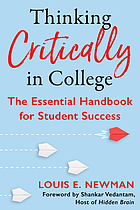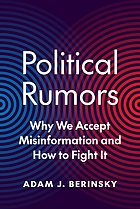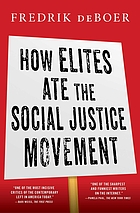Introducing The Friday List! Every week, new books are arriving at RLB Library and to keep you up-to-date on what has come in, we’ll be posting the most recent 30 days of arrivals every Friday. The link below will take you to a catalog listing so that you can explore and find titles that interest you. Be sure to check back regularly to see what else has arrived!
THE FRIDAY LIST
If you want some ideas on what to read, here are some highlights:

Below Baltimore : an archaeology of Charm City, Adam D Fracchia, Patricia Samford, 2023
Providing the first synthesis of the archaeological heritage of Baltimore, this book explores the layers of the city’s material record from the late seventeenth century to the recent past.

Thinking critically in college : the essential handbook for student success, Louis E Newman, 2023
Nearly every first-year college student discovers that college courses are more academically challenging than they expected, and certainly harder than classes in high school. Professors expect students not just to absorb material, but to analyze and synthesize it, to consider multiple perspectives, to evaluate conflicting evidence, and then to apply what they’ve learned in new contexts. Thinking Critically in College explains how to do all this and more. In this groundbreaking book former Dean of Academic Advising and Associate Vice Provost at Stanford University Louis E. Newman draws on his extensive experience working with students with a wide range of interests and varying levels of academic preparation. Written in a personal, engaging style, Thinking Critically in College is an indispensable guide to college success for students from all academic backgrounds. Grounded in decades of experience, built around real-life examples of college assignments, informed by the latest research into learning, and shaped by student experiences in the classroom, Thinking Critically in College is an invaluable resource, not only for those in college or headed there, but for everyone who needs a refresher on thinking clearly.

Political rumors : why we accept misinformation and how to fight it, Adam J Berinsky, 2023
In this book, Adam Berinsky examines why political rumors exist and persist despite their unsubstantiated and refuted claims, who is most likely to believe them, and how to combat them.Drawing on original survey and experimental data, Berinsky shows that a tendency toward conspiratorial thinking and vehement partisan attachment fuel belief in rumors. Yet the reach of rumors is wide, and Berinsky argues that in fighting misinformation, it is as important to target the undecided and the uncertain as it is the true believers. We’re all vulnerable to misinformation, and public skepticism about the veracity of political facts is damaging to democracy. Moreover, in a world where most people simply don’t pay attention to politics, political leaders are often guilty of disseminating false information-and failing to correct it when it is proven wrong. Berinsky suggests that we should focus on the messenger as much as the message of rumors. Just as important as how misinformation is debunked is who does the debunking.

How elites ate the social justice movement, Fredrik deBoer, 2023
An eye-opening exploration of American policy reform, or lack thereof, in the wake of the murder of George Floyd and the Black Lives Matter movement and how the country can do better in the future. In 2020, while the Covid-19 pandemic raged, the United States was hit by a ripple of political discontent the likes of which had not been seen since the 1960s. The spark was the viral video of the horrific police murder of an unarmed Black man in Minneapolis. The killing of George Floyd galvanized a nation already reeling from Covid and a toxic political cycle. Tens of thousands poured into the streets to protest. Major corporations and large nonprofit groups-institutions that are usually resolutely apolitical-raced to join in. The fervor for racial justice intersected with the already simmering demands for change from the #MeToo movement and for economic justice from Gen Z. The entire country suddenly seemed to be roaring for change in one voice. Then nothing much happened. In How Elites Ate the Social Justice Movement, Fredrik deBoer explores why these passionate movements failed and how they could succeed in the future.